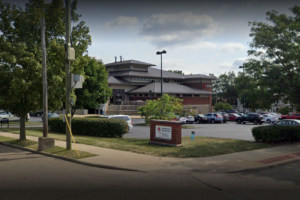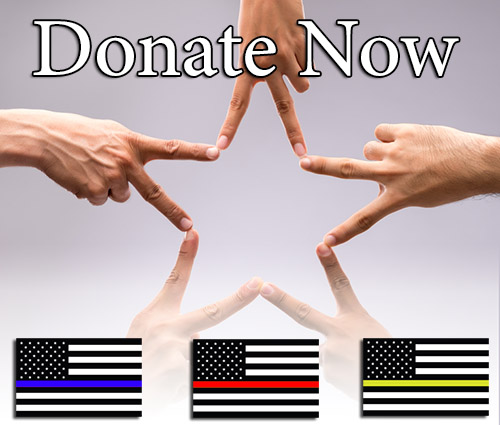2008, December 11: ” He entered through a door marked no entrance & left through a door marked no exit.”
December 11 – 17, 2008
“ HE ENTERED THROUGH A DOOR MARKED NO ENTRANCE AND LEFT THROUGH A DOOR MARKED NO EXIT.”
We all spent time across the past months fulfilling OPOTA requirements dealing with victims with disabilities. There were some common tools or practices which were germane to all of them: control the environment, don’t rush things, watch our attitudes, capitalize on the major means of communication and keep eye contact. That latter was critical. It locked us to the person, kept us safe and helped keep the call from going south.
What we may miss is that this is exactly what God was doing at Christmas. In the beginning of the book of John and later in his first letter there is something that is not obvious in the English translation. John writes about the “Word” that became flesh and he says the Word was “with God.” He says it again in the first chapter of the First Letter later on – which he now writes as an old man looking back on what he had seen and heard and even touched. The real translation in both places is not “with God” but was “face to face with God.” Eye contact
He’s talking about something that started at Christmas the time when God made eye contact with us – the “Word became flesh and camped among us.” Advent – these weeks before Christmas – is the time when we discover or rediscover that the event in the fields of Bethlehem was where God made eye contact and now, during these weeks, would make eye contact with you and me.
But it probably won’t be in the “religious” sense of things. It seldom , if ever, has been that way. It certainly wasn’t that night. In all likelihood the shepherds probably were going out for another shift like they had a hundred other nights. They probably told jokes – some of which might have been a little off color- and complained about the one thing or another. Some of the people staying at the inn had probably turned in – beat from the journey – and others would have stayed around talking and griping about politics. There might even have been a few fights for all we know. The Inn Keeper was probably frazzled, somewhere between kissing his good luck for a full house and cursing the problems they were causing. And he probably kept an eye out for crooks, too. But right in the middle of it all God was up to His normal way of doing things in a way no one was expecting. And He did it.
Our carols try to capture it. Especially the old one, “O Come O Come Emanuel.” We probably sang it over the years and certainly hear it occasionally throughout the Christmas season. Yes, it talks about the coming of God – the face to face, eye contact of the Word which became flesh. The music expresses the tone of ancient anticipation. It’s a real prototype of what Advent is supposed to be. But did you ever pay attention to the second verse. It subtly shifts you from Christmas to Easter; from a stable to a cross. That takes some of the softness of the season and puts it back into the realities that are tough. For those of the Christian faith it mocks the narrow focus of “It’s a boy!” and pales the phrase “Happy Holidays.”
If you really want digest Christmas then you have to sing the second verse: Easter and you don’t get there on an easy street. The stable and the cross are inseparable. Both are God’s initiative to speak to our days and nights. It is the wedding of two geographic places: Bethlehem where it starts and Jerusalem where it ends … and then begins again in God’s dogged search for you and me. And that has over history been in ways that we would not have anticipated.
Peter Larson caught this in his one of his works: “Despite our efforts to keep Him out, God intrudes.” It is “bracketed by two impossibilities: a virgin’s womb and an empty tomb.” He entered our world “through a door marked NO ENTRANCE and left through a door marked NO EXIT.”
It addresses our beginning and our end. It is the epitome of hard, cold reality and it’s meant to inform everything in between. Amid all the questions raised over the past year – a year that has daunted many of us – and even this week there is the constant that He will be in it. Amid our uncertainties and fears , the unfairness and failures there is this constant that addresses it all. Emanuel, after all, means God is with us
Cops and Christmas have always been a mix up at this time of year. Unless you got off you won’t be with the ones you’d want to be with. You’ll inherit a lot of stuff – from the revelers to the desperate; those who are alone and those who wish they were. You’ll see expectations set too high and unattainable and you’ll see more clearly than most all the others the distance between the beginning and the end in more people’s lives. And…you may get a glimpse of some of it in your own life journey. It’s OK. If there is any message of Christmas – and there are many – it is that God has always done what wasn’t expected. With the entrance and the exit he now promises to do what you don’t expect Him to do —


